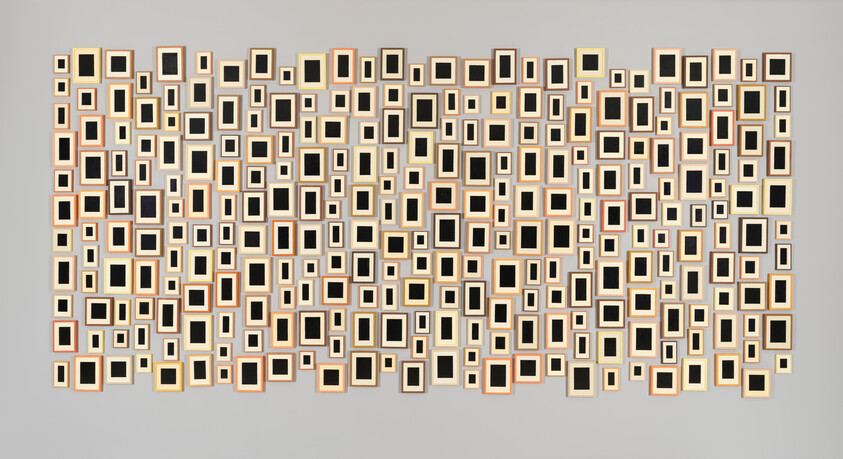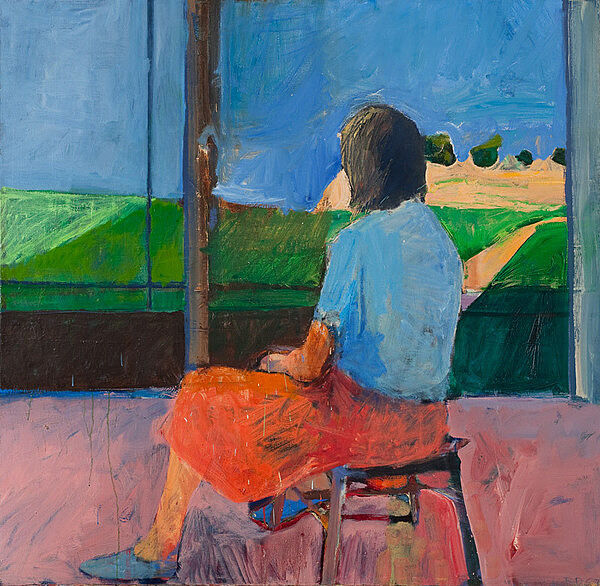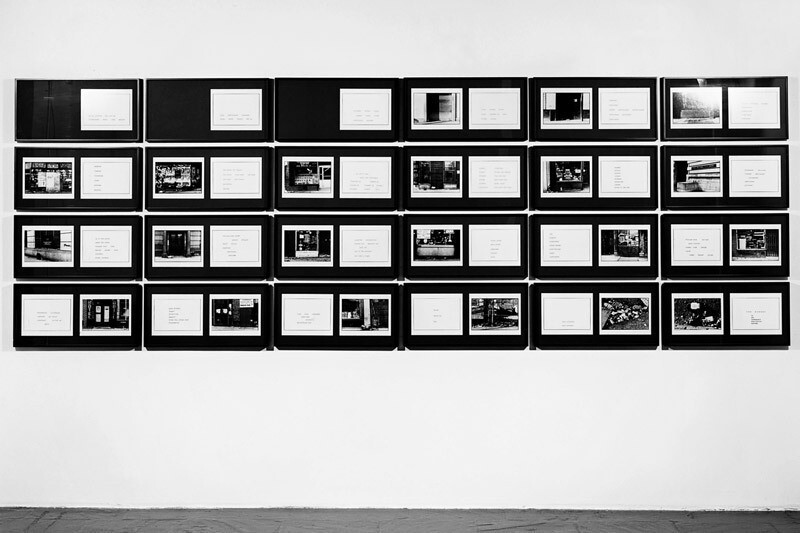Constructed over a seven-year period, Allan McCollum’s 288 Plaster Surrogates is an installation of 288 cast plaster objects that resemble framed art works, each enclosing a black center where one would expect to find an image. In 288 Plaster Surrogates, McCollum isolates and emphasizes two recognized conventions of art display—framing and the arrangement of works on the wall—in order to indicate that these seemingly tangential elements of art may actually be crucial to our understanding of form and perception of meaning. McCollum proposes that the systems of display perpetuated by art institutions do not necessarily preserve the purity of the work of art, but rather establish a set of viewing conditions that play an important role in determining our responses. Further, by using the traditional sculptural process of casting to create his “surrogates,” and by emptying them of any overt content, McCollum inverts the conventional conception of form as a carrier of content. “What is it we want from art that our belief in ‘content’ works to hide from us?” McCollum has asked. To help answer the question, he gives us art without that troublesome content. What we see when we try to read into each form is simply our own reflection.
Not on view
Date
1982/1989
Classification
Sculpture
Medium
Enamel on solid-cast Hydrostone
Dimensions
Dimensions variable
Accession number
2000.190a-h
Credit line
Gift of Joan and Jerome Serchuck
Rights and reproductions
Image courtesy of Friedrich Petzel Gallery, New York



